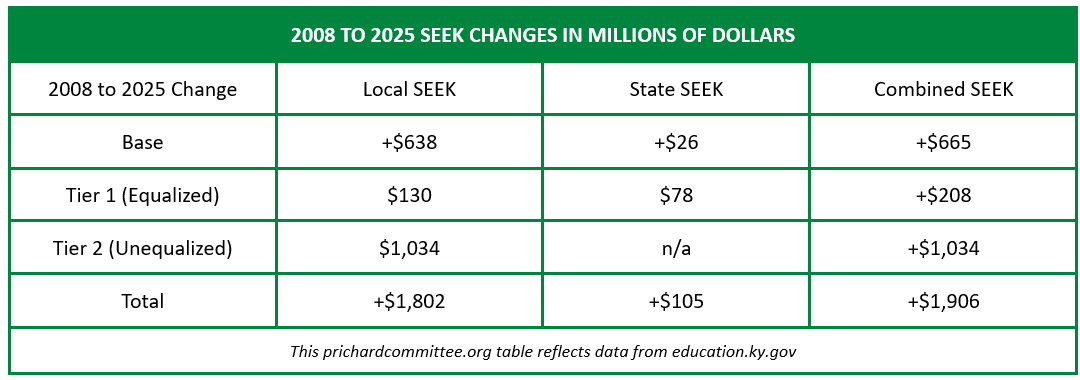Nov. 20, 2024
Contact: Lisa McKinney, Communications Director, The Prichard Committee
(cell) 859-475-7202
New Report Shows Impact of Family Engagement in Kentucky Schools
LEXINGTON, Ky -- When schools implement intentional strategies to create a culture of family engagement, families’ knowledge of the education system improves and teachers’ job satisfaction improves. Further, with support and encouragement, families feel prepared to partner with schools and help them develop authentic family engagement activities. These are among the key findings in a recent report released by the Prichard Committee for Academic Excellence and conducted by the Center for Policy, Research, and Evaluation at the NYU Metro Center.
“These initial findings validate the strength of the family engagement work happening in schools across Kentucky,” said Brigitte Blom, President & CEO of the Prichard Committee. “When schools and families partner, student outcomes improve; it’s that simple. We’re excited by the research findings that show small, intentional steps to engage families can have big, positive impacts.”
The Kentucky Collaborative for Families and Schools Research and Evaluation Findings 2020-2023 provides an overview of findings from the 5-year startup of the Prichard Committee’s Collaborative for Families and Schools, which benefitted from funding for Statewide Family Engagement Centers through a US Department of Education grant. The work resulted in the development of the Family Friendly Schools Certification process and built upon the proven 26-year legacy of the Commonwealth Institute for Parent Leadership. In addition, the Prichard Committee worked deeply with four regional partners: Learning Grove, Partners for Rural Impact, The National Center for Families Learning, and Daviess County Public Schools. The work is anchored in the Dual Capacity-Building Framework, which is the widely accepted research-based framework for building effective partnerships.
"Rather than focusing on scaling up a specific family engagement program, the Kentucky Collaborative supported schools and communities statewide to combine evidence-based practices with local wisdom, leadership, and relationships. This approach was not only more effective, but also more sustainable," said Dr. Joanna Geller, NYU’s director of policy, research, and evaluation and the study’s principal investigator.
Findings include:
For teachers, the most improved family engagement actions included:
- Increase in school outreach to families
- Teachers sending communications about what children learn in class
- Schools encouraging parents to reach out to other parents
- Staff applying knowledge of parents’ various cultural backgrounds when collaborating with them
- Schools becoming more linguistically responsive
Families reported an increase in the following actions:
- Ever attending family events (+25%) and volunteering (+22%)
- Believing teachers regularly communicate about how to help their children learn and encourage parent feedback (each +12% change in strongly agreeing)
- Perceiving stronger climate for family leadership in all areas (+10-11% change in strongly agreeing)
- Knowing special programs available at the school to help their child (+10% change in strongly agreeing)
In addition, educators who participated in training were almost twice as likely to report a great deal of confidence with family engagement, and participating in training appears to have increased their satisfaction with their job.
“When districts prioritize family partnerships and schools create authentic spaces for connection, the ripple effect is powerful,” said Brooke Gill, vice president and director of the Prichard Committee’s Kentucky Collaborative for Families and Schools. “These findings should be used across the state to encourage more schools to create time and space for families and educators to build authentic connections.”
The report also found some important differences in how families are supported broadly. Namely, families of color and with less affluence reported less outreach to them by schools and a less welcoming environment for families. As Kentucky schools continue to support effective family engagement, reflecting on and implementing strategies that engage all families through a strengths-based lens will be important.
“While this initial report shows important leading indicators that family engagement efforts have a positive effect, in the years ahead, we are eager to show the direct impact effective family engagement can have on outcomes for all students as we work to expand Family Friendly Schools Certification and Fellows of the Commonwealth Institute for Parent Leadership,” said Blom.












